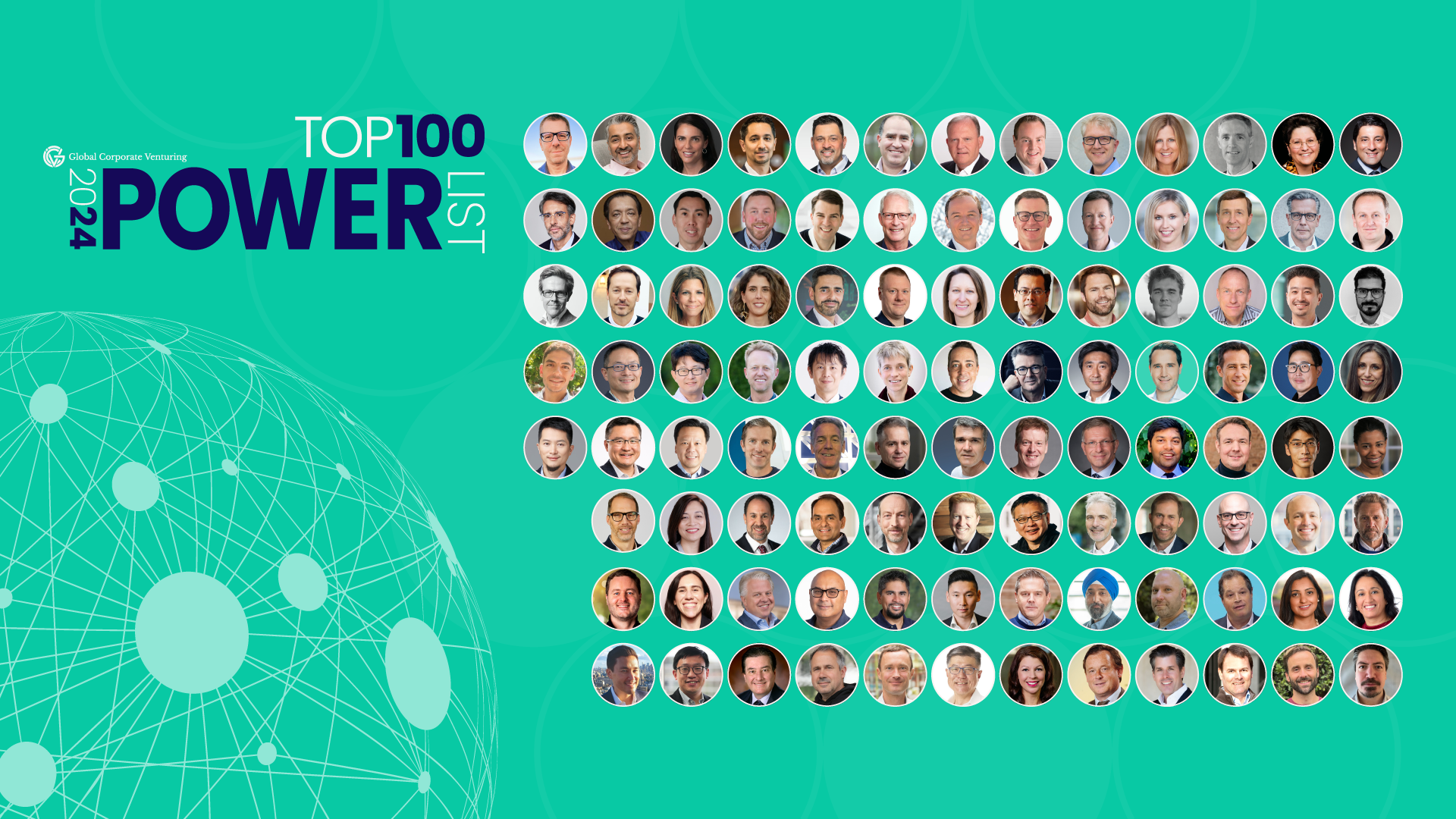
This year’s Global Corporate Venturing Powerlist — our annual awards for the 100 most influential people in corporate venture capital — includes 37 new names, a sign of how much CVC activity is expanding, both geographically and by sector. Generative AI, in particular, features heavily in this year’s list of investors.
New names on this year’s include Ian Hathaway, head of OpenAI Startup Fund, and Mohamed “Sid” Siddeek, head of NVentures, Nvidia’s investment fund. OpenAI, itself a young company and recipient of venture funding, has been quick to pay it forward by investing in an ecosystem of startups building on top of its foundations. NVentures, meanwhile, has reflected Nvidia’s elevation to the world’s most valuable company with a flurry of investments, with more than 20 startup funding rounds since the start of 2024.
A number of other new entrants to the list didn’t start out as specifically AI investors but have now launched large funds dedicated to generative AI. ServiceNow Ventures, the investment arm of the digital workflow company ServiceNow, was early into the trend, launching a $1bn AI fund last May. Databricks Ventures also recently launched a second AI fund, and has a number of AI unicorns, including Mistral and Glean, in its portfolio. Our list features Vaibhav Narayanam of ServiceNow and Phil Shin of Databricks. IBM Ventures, headed by Tom Whiteaker, launched a $500m AI venture fund last November and PayPal Ventures, headed by James Loftus, has set aside part of its fund specifically for AI.
Salesforce Ventures, headed by John Somorjai, who has featured on the GCV Powerlist eight times, recently doubled the size of its AI fund to $500m, and Cisco Investments, led by Derek Idemoto, launched a $1bn AI fund earlier this month.
New geographies
Other new names on the Powerlist reflect the continued growth of corporate venturing activity globally. Telefonica’s Wayra investment arm, led by Irene Gomez, for example, is active in dealmaking in Latin America, which has been seeing a surge in CVC activity. Archana Srivatsan, meanwhile, heads up South and Southeast Asia investing for the investment arm of the Bill & Melinda Gates Foundation. She started her portfolio-building in India, which is attracting increasing numbers of corporate venture investors, and has built out to other parts of the region, such as Indonesia. Seçkin Yelmen, managing director of Sabancı Ventures, is our first Turkish entrant to the Powerlist.
CVC is now a long-term profession
At the same time, we have 28 investors on the 2024 list that have been included in a Global Corporate Venturing Powerlist five or more times — a group we’ve dubbed the “Five-star Powerlisters”. This is a sign of another trend in CVC — increasing longevity for units and investors.
The joke always used to be that the average lifespan of a corporate investment unit was four years. After that it would get shut down by the corporate as priorities changed. But this no longer true. Some 60% of the corporate venture units which took part in our annual survey last year, have been in operation for longer than four years. Many of the Five-star Powerlisters have led their units for more than a decade. Roy Bahat, at Bloomberg Beta, for example, has featured on the Powerlist since 2013. Crispin Leick, who now leads EnBW New Ventures, has featured nine times, and Bill Taranto, head of MSD Global Health Innovation Fund, and Bernhard Mohr, who runs Evonik Venture Capital, both a whopping 11 times.
Read these profiles as a guide to CVC best practice
The profiles we’ve written about these investors aren’t just about puffing up their egos. They are meant to serve as a showcase of the different approaches to CVC investing. If you are looking for ideas for your own CVC programme, considering a pivot, or simply wondering what “good” might look like in your industry peer group, it is worth looking through these.
Here are a few worth checking out:
- • Having venture building as a primary focus for the corporate venture unit (Gurdeep Singh Kohli, SC Ventures)
- • Championing under-represented groups in venture investing (Rachel Sheppard, Mars Petcare)
- • Investing in generative AI for financial services (David Rolf, Visa Ventures)
- • Pivoting to working with startups that can collaborate with the parent corporation quicker (Kei Onishi, Yamaha Motor Ventures)
- • Healthcare investments in the post-pandemic world (Samantha Palmer, Amgen Ventures)
- • CVC investment from a Chinese perspective (Jeffrey Li, Tencent Investments)
- • CVC at a privately-held company (John Glushik, HG Ventures)
